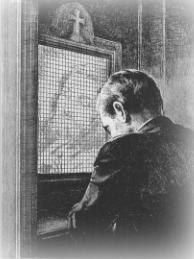
In the collect prayer of the day’s liturgy, he began, “we asked for help from the Lord, who is our strength”. We prayed: “In our weakness, we can do nothing without your help”. These words express our “awareness that we are weak”. It is “this weakness that we all have, after the wound of original sin: we are weak, we slide into sins, we cannot go forward without the Lord’s help”.
This is why, Francis stated, “recognizing and confessing our weakness is truly indispensable”. Indeed, “one who thinks he is strong, who thinks he can do it on his own, is at least naïve and, in the end, is a man defeated by so many weaknesses which he carries within himself”. Instead, “weakness leads us to ask the Lord for help”, since, as recited in the collect prayer, “in our weakness, we can do nothing without your help”.
Thus, the Pope continued, “we cannot take a step in Christian life without the Lord’s help, because we are weak”. And “a person who is standing must be careful not to fall because she is weak, also weak in faith”. Remember, he said, that father who, after the transfiguration, “brings his son for Jesus to heal him. And Jesus says that all is possible for those who have faith”. The father responds: “I have faith, but make it grow, Lord, for I am weak!”.
“We all have faith”, the Pontiff explained, “and we all want to move forward in the Christian life. But if we are not conscious of our weakness we will all end up defeated”. This is why, he added, “this prayer is beautiful: ‘Lord, I know that in my weakness I can do nothing without your help’”. And “this is today’s first word: weakness”.
The second word is “prayer”. The Apostles asked Jesus: “teach us to pray as John did with his disciples”. (Although, the Pope recalled, in the Gospel passage of the day’s liturgy, taken from Chapter 6 of Matthew (7-15), ‘the question isn’t there, it’s in another” passage.) Jesus teaches the disciples how to pray and advises them not to be like pagans who waste words. “They think that they will be heard for their many words”. Francis repeated the words of the Lord to the disciples: “Do not be like them, for your Father knows what you need before you ask him”.
Then the Pope referred to a passage from the First Book of Kings: on Mount Carmel “the 400 prophets of the idol Baal shouted and cried aloud; and the Prophet Elijah mocked them a little”, saying that perhaps their god “is asleep and doesn’t hear you”. But “this is how pagans pray”. But instead, Jesus recommends: “Don’t do this! Pray simply, the Father knows what you need, open your heart before the Father”. Do precisely “as that woman who was in the temple of Jerusalem, the mother of Samuel: she asked the Lord for the grace to have a son, and she moved only her lips”. Thus, “the priest who was there watched her”, became convinced that she was drunk, scolded her and pushed her away.
However, that was her way of expressing “sorrow before God: she moved only her lips because she couldn’t manage to speak, she was asking for a son”. Thus, the Pope affirmed, “this is how to pray, before the Lord”. And “since we know that he is good and knows everything about us and knows what we need”, Francis offered, “we begin speaking that word, ‘Father’, which is a human word, of course, which gives us life, but only in prayer are we able to say it with the strength of the Holy Spirit”.
Before the Gospel the antiphon, taken from the Letter of Paul to the Romans (8:15), reminded us: “you have received the spirit of sonship, through whom we cry, ‘Abba! Father!’”. It is the Spirit, the Pontiff explained. And thus “we begin to pray with the strength of the Spirit who prays in us”. We need to “pray this way, simply, with the heart open in the presence of God who is Father and knows the things we need before we ask for them”. And “this is the second word” for today: prayer.
“There is a condition for praying well”, Francis then advised, “which Jesus takes up in the very prayer he teaches to his disciples”. And this is the third word: forgiveness. The prayer that Jesus teaches us says: “forgive us our debts as we also have forgiven our debtors”. And “then Jesus takes up this idea”, saying “For if you forgive men their trespasses, your heavenly Father also will forgive you; but if you do not forgive men their trespasses, neither will your Father forgive your trespasses”.
For this reason, the Pope explained, “we can pray well and say ‘Father’ to God only if our heart is at peace with others, with our brothers and sisters”. To one who justifies herself saying: “this person did this to me, this one did this and that to me…”, there is only one response: “forgive, forgive as He will forgive you!”. And “thus the weakness we have — with the help of God in prayer — becomes strength, for forgiveness is a great strength: one needs to be strong in order to forgive, but this strength is a grace that we have to receive from the Lord because we are weak”.
In the Eucharistic celebration, the Pope concluded, “he too makes himself weak for us, he becomes bread: there is the strength. He prays for us. And he forgives us: let us learn from him the strength of trust in God, the strength of prayer and the strength of forgiveness.

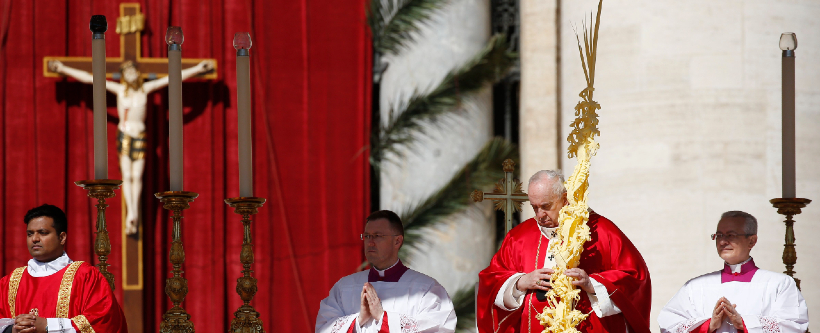
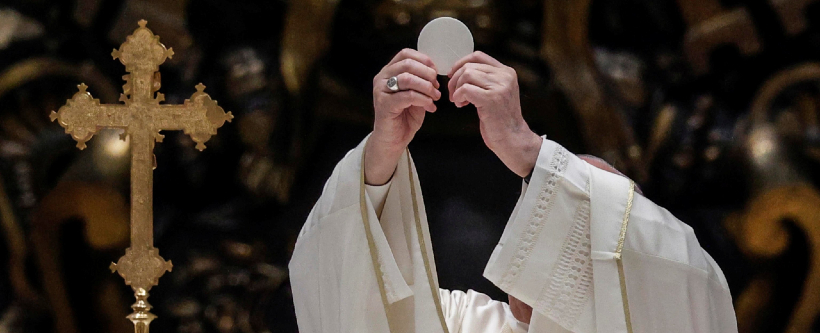
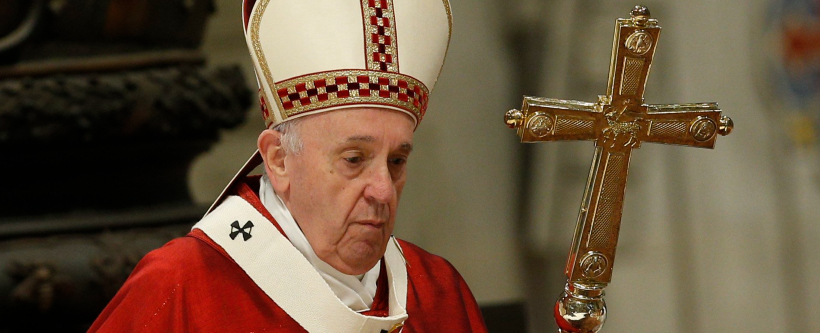
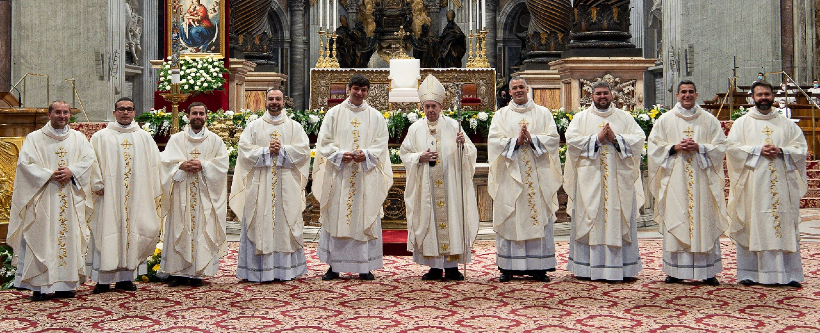
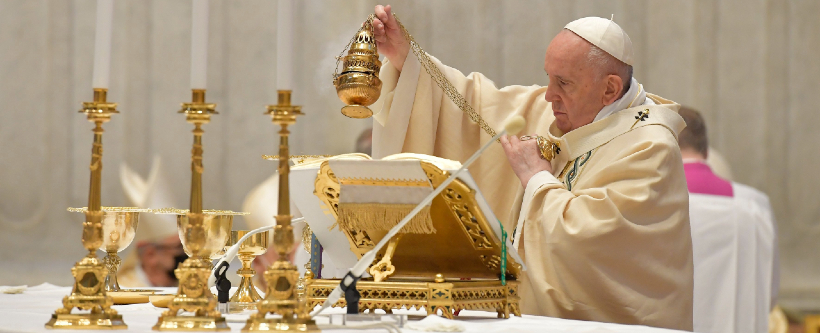
Facebook Comments